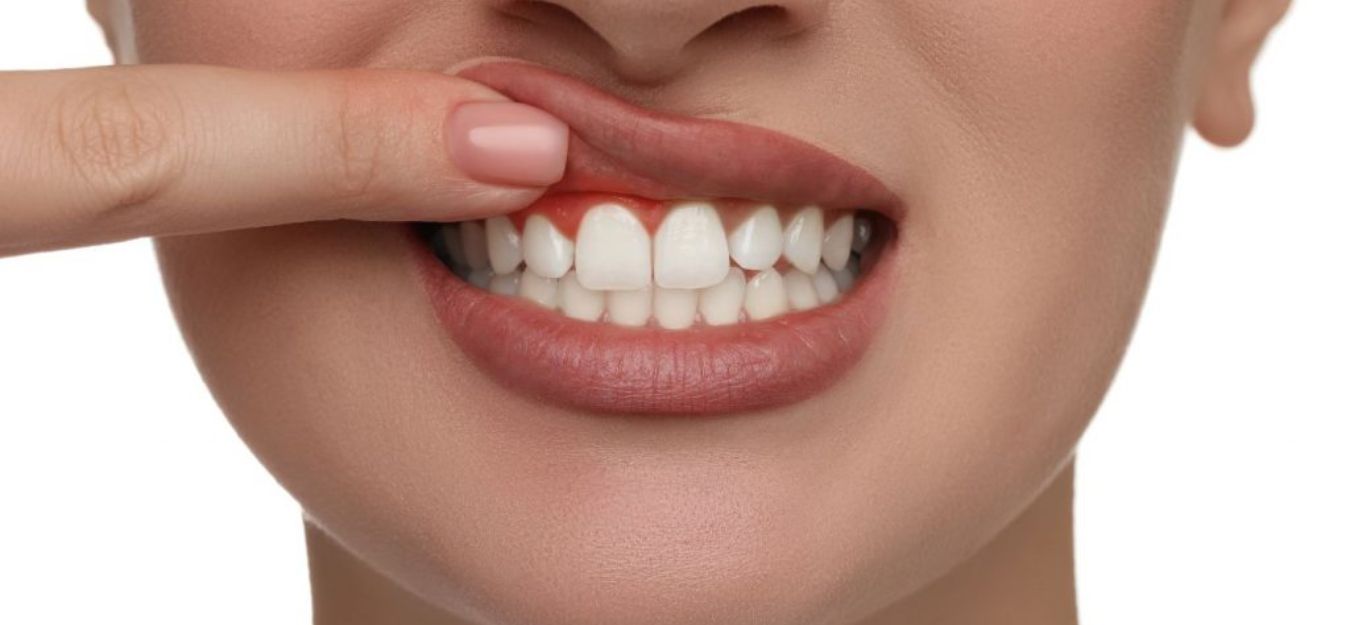Healing Your Gums Naturally
Gum disease, also known as periodontal disease, includes a variety of oral health conditions including gingivitis and periodontitis. Gum disease can destroy the bones that support your teeth without appropriate treatment, which may lead to tooth loss. The good news is that various home remedies can help cure gum disease in the early stages of the disease and improve your oral health. So, without further ado, here’s how to cure gum disease without a dentist.
Symptoms of Gum Disease
The symptoms of gum disease range in severity and may include:
- Red and/or swollen gums.
- Bleeding gums.
- Bad breath.
- Receding gums.
- Painful spots on the gums when eating.
- Loose teeth.
5 Effective Home Remedies for Treating Gum Disease
Below, we’ll discuss five of the best home remedies for early-stage gum disease so you can save some cash by learning how to cure gum disease without a dentist visit.
1. Salt Water
Salt water is a natural disinfectant that can help treat gum disease by soothing gum inflammation and pain, reducing bacteria, removing food particles between teeth, and relieving bad breath.
To rinse with salt water, add ½ to ¾ teaspoon of salt to warm water and thoroughly mix. Swish the salt water solution in your mouth for 30 seconds and then spit. Repeat two to three times daily.
While salt water can be effective, it shouldn’t be used too often or for long periods because it can negatively impact the enamel of your teeth due to its acidic properties.
2. Baking Soda
Baking soda may help to improve oral health by removing plaque build-up on teeth, softening tartar and preventing gingivitis. To use baking soda, you can make a paste or a rinse.
To make a baking soda paste, mix one teaspoon with warm water and gently rub the baking soda paste on your gums for 30 seconds. Then rinse your mouth with salt water.
To make a baking soda rinse, mix one teaspoon with a cup of warm water, swish the solution in your mouth for 30 seconds and then spit and rinse your mouth.
3. Tea Tree Oil
Tea tree oil has several antibiotic and antiseptic properties that can help eliminate plaque and bacteria in your mouth. There are two ways to use tea tree oil for oral health.
The first is to mix one drop of tea tree oil with your usual toothpaste and brush. Ensure that you don’t use more than one drop of tea tree oil, and make sure that you don’t swallow it.
The second is to use a tea tree oil mouthwash by adding up to three drops of tea tree oil to one cup of warm water. Swish the mouthwash in your mouth for 30 seconds and then spit. Repeat two to three times daily.
4. Turmeric Gel
Turmeric gel has antifungal and anti-inflammatory properties and may help to prevent plaque build-up and gum disease. Apply turmeric gel to your gums for 10 minutes and then rinse with water and spit.
5. Coconut Oil Pulling
Coconut oil pulling has antimicrobial and anti-inflammatory properties that help clean teeth and gums. Coconut oil pulling is an oil mouthwash.
Put one to two teaspoons of fractionated coconut oil in your mouth to use coconut oil pulling. Then swish the oil around in your mouth for 20 to 30 minutes; it will become a liquid during this time. Spit the oil out of your mouth, rinse with water and spit again. Drink a full glass of water and then brush your teeth.
Many people have a hard time squishing the oil mouthwash for the recommended length of time, so it may be beneficial to start swishing for smaller amounts of time until you’re able to handle 20 to 30 minutes, or you may swish a couple of times per day for shorter periods.
Coconut oil pulling has been practiced for many years and is safe for improving oral health. However, it’s important not to swallow the oil because it has bacteria and toxins in it that have been pulled from your mouth during the swishing process.
Avoiding Gum Disease
While there are numerous home remedies to treat gum disease, the easiest thing to do is prevent gum disease from developing in the first place.
Some tips to avoid gum disease include:
- Practice good oral hygiene by brushing at least twice a day and flossing at least once a day.
- Maximize cleaning potential by using an electric toothbrush.
- Use a toothbrush with extra soft or soft bristles.
- Get a new toothbrush at least every three months.
- Visit your dentist at least once a year.
- Avoid chewing tobacco and smoking.
- Minimize sugar consumption.
Gum Health at Home
Prevention of gum disease is possible with good oral hygiene. But, if you happen to suffer from gum disease, you can often successfully treat it at home with the home remedies mentioned in this article. However, if home remedies don’t work and your gum disease worsens, it’s important to consult a qualified dentist for treatment to prevent gum disease complications such as tooth loss.

